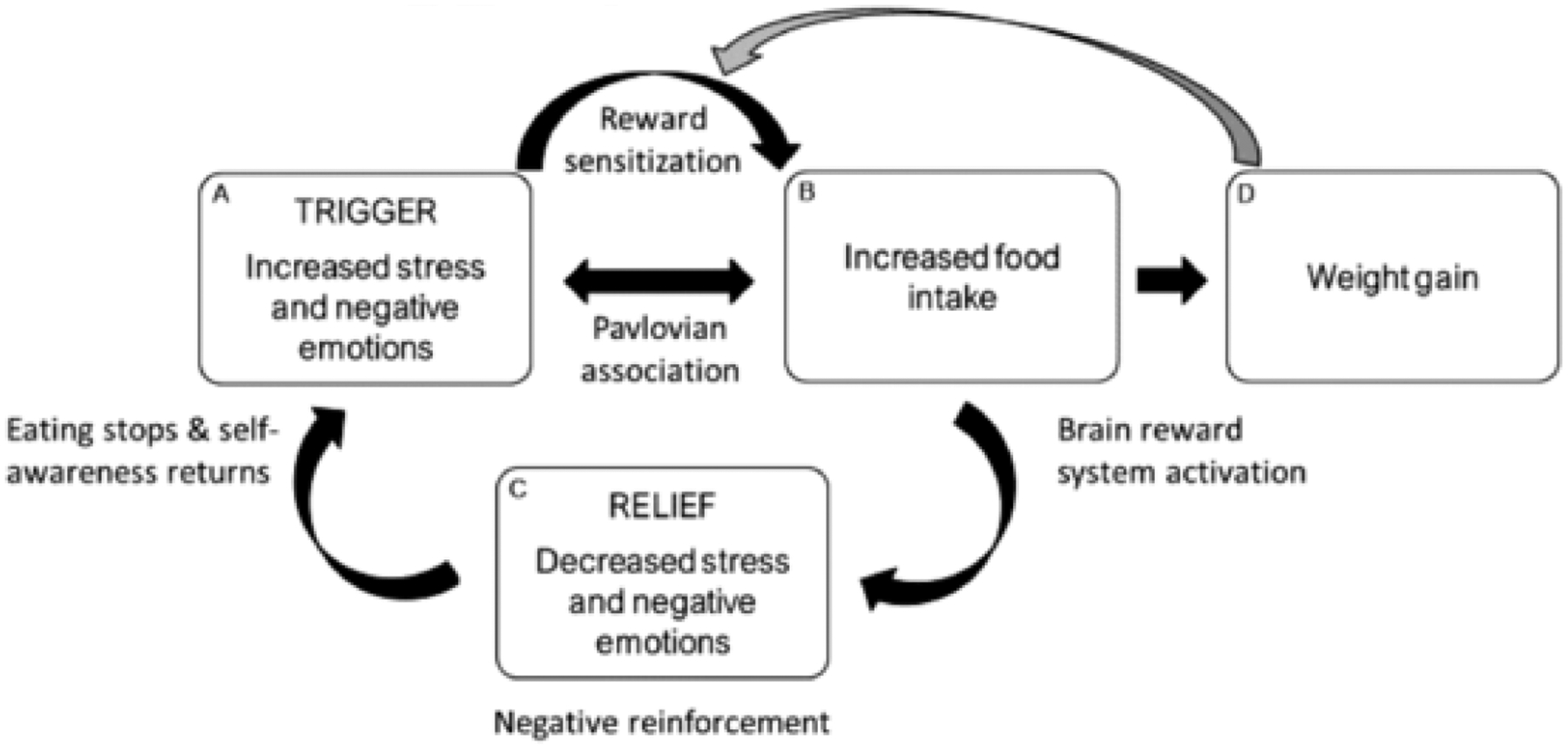Fig. 1.

An emotion regulation model is presented in which emotional eating is part of a feed-forward cycle. Increased stress and negative emotions (i.e., trigger; box A) sensitize the brain reward system (pathway) and lead to increased food intake (box B) and weight gain (box D). Increased food intake (box B) causes further activation of the brain reward system and leads to decreased stress and negative emotions (i.e., relief; box C). However, this short-term emotional relief (i.e., negative reinforcement) is not sustained, as stress and negative emotions (box A) return upon the cessation of eating. Over time, increased stress and negative emotions (box A) are more likely to trigger food intake because of positive feedback from factors such as conditioning, brain reward processes, enhanced emotion regulation motives, and weight gain. The gray arrow indicates that weight gain (box D) enhances reward sensitization, which creates a positive feedback loop. Reproduced from [34].
